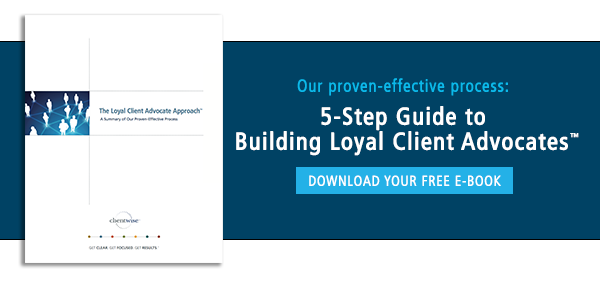Unlocking the Gate: 5 Key Referral Criteria
 Why is it that some advisors seem so successful at building a Professional Advocate Network of attorneys, CFPs and estate planners, while other equally capable advisors struggle? Much of the disparity comes down to a simple matter of better understanding the audience, their needs and most importantly, their concerns.
Why is it that some advisors seem so successful at building a Professional Advocate Network of attorneys, CFPs and estate planners, while other equally capable advisors struggle? Much of the disparity comes down to a simple matter of better understanding the audience, their needs and most importantly, their concerns.
A recent study by Spectrem Group entitled “Centers of Influence and Gatekeepers: Their Influence on Referrals and Wealth Transfer,” serves to shed some interesting light on the topic.
It’s essential to approach this challenge from the potential referrer’s perspective: examining yourself, your practice, your investment and client service approaches through their eyes.
Keep in mind that for the vast majority of these professionals, you’re asking them to entrust you with the well-being of a lucrative, long-term client – a relationship they will be putting at risk if for some reason you fail to impress, or worse disappoint, the referred client.
I think we can all agree it’s a big ask. For that reason alone, few if any attorneys or accountants are going to provide a single referral to a client, but instead will provide them with the names of 3-5 trusted advisors the firm has vetted. So how can you improve your likelihood of making those lists?
5 Key Referral Criteria
-
Credentials: Do designations really matter? Yes and no. While three out of four high net worth clients say it’s important to them that their advisor has professional registrations and licenses, attorneys and accountants are a bit more skeptical. While they acknowledge that credentials like the CFA and CFP show a higher degree of expertise and training, they also point out that designations offer no real insight into your honestly, trustworthiness, or commitment to client care.
-
Fiduciary status: Especially in light of recent press around the new DOL Fiduciary Rule and an increasing understanding among clients of the difference between suitability standards and a fiduciary duty of care, for many potential referrers this is fast becoming a baseline requirement.
-
Practice size: Both in terms of a client’s financial needs (and your ability to deliver on them) as well as their general comfort level (e.g., are they a bit timid and easily overwhelmed by a larger firm), this can be a key referral determinant.
-
Timely and purposeful communication: Rather than a potential disqualifier, this is more of a positive differentiator when handled well. At all costs, avoid cold calls and frequent “touch base” emails (especially during tax season) as they are the surest path to deletion. Limit your unsolicited contact to one a quarterly, and focus it on something thoughtful and meaningful that can help clients (e.g., information about a new approach to investment tax loss harvesting).
-
Personality: For many professionals, this will be the key factor that drives them to refer you – recommending an advisor who shares similar interests and personality types with the client. The same holds true for your overall approach to investing. Are you more protection and preservation focused or someone who thrives on chasing alpha? The more time you can spend face-to-face networking with potential professional advocates, the better they’ll be able to assess these traits and match their clients to you.
Remember that these gatekeepers have worked incredibly hard to earn their client’s trust – a trust that in many instances has taken years to establish, but could potentially be shattered in an instant if they make a poor referral. So when you do make the short-list and get your first referral, make every effort to go above and beyond in your service and communication. When it comes to retaining the trust of professional advocates, there are no second chances.
Coaching Questions from this article:
-
Why do you refer people to other professionals, and what criteria do you consider when identifying the right individual?
-
What can you learn from that process to help you better develop your network of professional advocates?
-
What specific actions will you commit to undertaking in order to better position your practice as a trustworthy referral partner?

